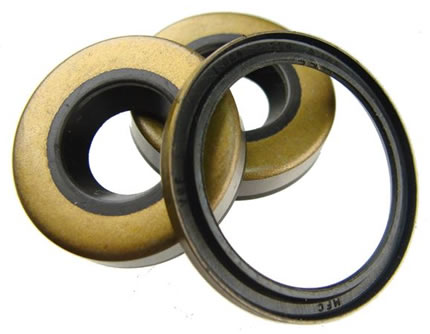Oil Seals
 Oil seals, also known as grease seals or rotary shaft seals, are essential components used in various mechanical systems to prevent the leakage of oil and other lubricants from rotating or moving parts. These seals play a critical role in maintaining the efficiency and longevity of machinery and equipment by keeping contaminants out and lubricants in.
Oil seals, also known as grease seals or rotary shaft seals, are essential components used in various mechanical systems to prevent the leakage of oil and other lubricants from rotating or moving parts. These seals play a critical role in maintaining the efficiency and longevity of machinery and equipment by keeping contaminants out and lubricants in.
Oil seals are typically made from elastomeric materials, such as rubber or synthetic compounds like Nitrile (NBR), Viton (FKM), or Silicone (VMQ). The choice of material depends on factors such as the operating temperature, fluid compatibility, and sealing requirements of the specific application. The basic design of an oil seal consists of a flexible lip that contacts the rotating shaft, a metal case that holds the seal in place, and a garter spring that provides radial tension on the lip. The lip is the primary sealing element and is in direct contact with the shaft's surface.
The primary function of an oil seal is to create a barrier that prevents the escape of lubricants (such as oil or grease) from inside a machine or component while also keeping contaminants (such as dust, dirt, and moisture) from entering. This dual action is crucial for the proper functioning and longevity of the equipment.
When the shaft rotates, the oil seal's lip follows the shaft's surface, maintaining a dynamic seal. The garter spring ensures constant contact between the lip and the shaft, providing the necessary radial tension to create an effective seal. This design ensures that lubricants are retained, friction is reduced, and wear and tear are minimized.
Are you looking for Oil Seals?
Submit an RFQ now!
